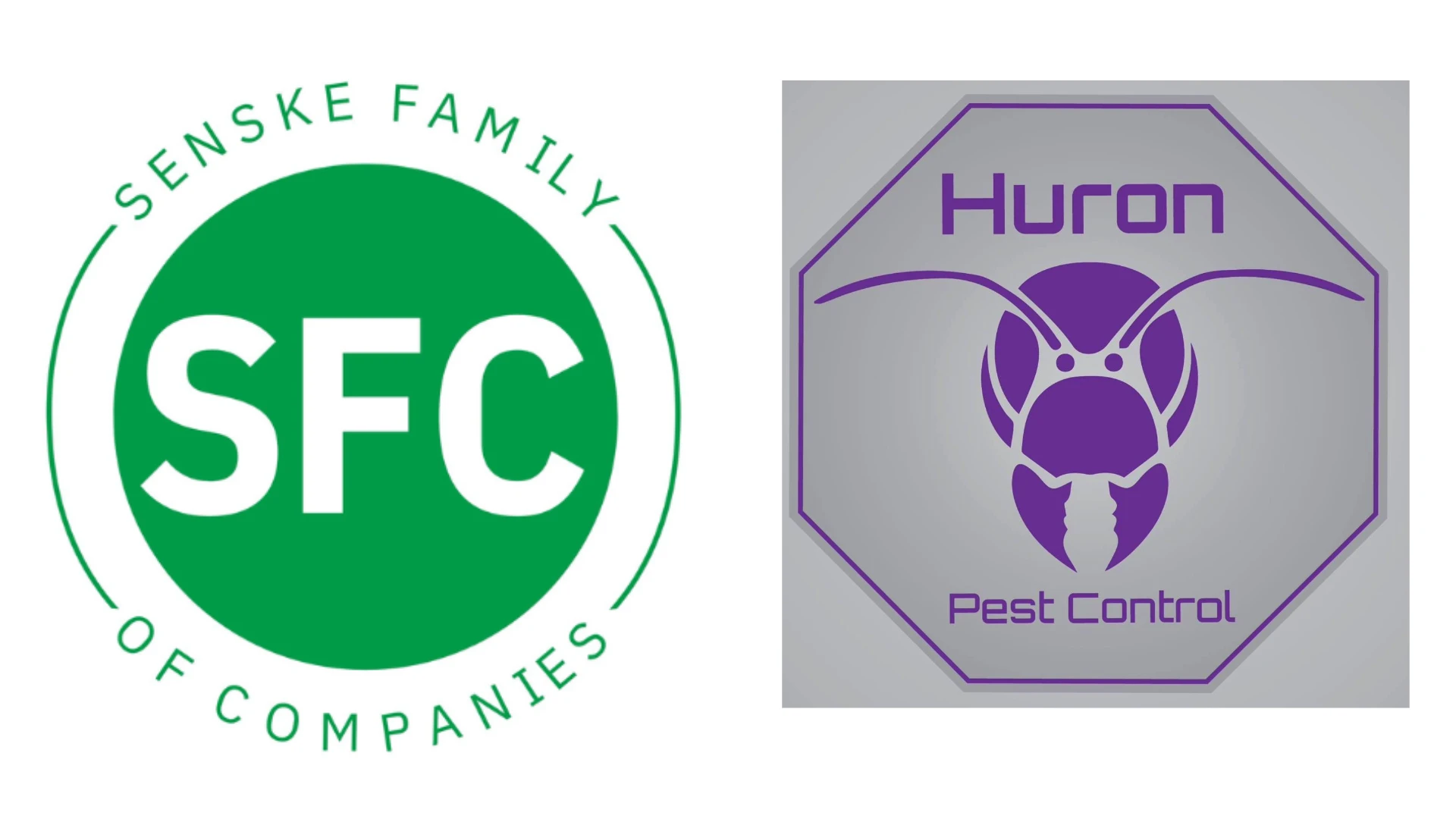The stalled housing market has cut termite inspection revenue across the country, but in Connecticut and Georgia, the situation’s far worse.
Much of the fall out stems from a December 2005 letter to lenders and real estate appraisers from the Federal Housing Administration of the U.S. Department of Housing and Urban Development, which clarified its requirements for Wood Destroying Insect and Organism inspections on the sale of existing properties.
Since then, Connecticut Pest Control Association members report inspections are down 25 to 80 percent, said President Joe Giaimo. Following HUD’s letter, the number of required inspections immediately "dropped off," he said. Professionals in Georgia also have seen a significant reduction in inspection revenue, said Richard Bell, vice president of government affairs and industry stewardship for Arrow Exterminators in Atlanta.
The HUD letter said inspections are no longer mandated, and are required only if evidence of active infestation exists, are mandated by state or local jurisdiction, are customary to the area, or lenders deem them necessary.
The clarification "muddied the waters," and put home buyers’ best interests at risk, said Gene Harrington, director of government affairs for the National Pest Management Association. Giaimo said mortgage bankers, real estate agents, even HUD employees in local offices, are under the impression inspections are no longer required.
It "was taken completely out of context," said Bell, who’s heading the matter for the Georgia Pest Control Association. "We live with the heaviest termite pressure in the U.S. and it certainly is customary" to perform inspections. That’s also the case in Connecticut, said Giaimo. A survey of CPCA members found 45 percent of properties inspected were infested or damaged by termites, carpenter ants, powderpost beetles or carpenter bees. It’s customary to have inspections in Connecticut, "yet they’re not happening anymore," he said.
HUD’s Philadelphia Homeownership Center office, which serves the Northeast, tried to clear up the policy in a June 5, 2006, letter to mortgagees. It said a WDI inspection report must be submitted to its office if the lender requested it or if required as a condition of the appraisal.
Appraisers, then, should be recommending inspections for every property, said Giaimo. "Even the appraiser isn’t aware of what’s supposed to be transpiring here." Real estate and pest management professionals agreed appraisers are neither qualified to identify WDI/WDO infestation or damage, nor do they regularly investigate areas where signs would be found, like crawlspaces.
The situation’s not much different from what happened to Connecticut surveyors years ago, when a Class A-2 survey was required to close a loan, said Norman H. Roos, legal counsel for the Connecticut Mortgage Bankers Association. When Fannie Mae and Freddie Mac made affidavits sufficient, the number of surveys dropped. "Did every loan closing need a Class A-2 survey?" asked Roos. "Probably not in many instances."
Buyers, sellers and pest management professionals are "driven by competitive forces" to make real estate transactions "a very lean process," said Roos, a partner at Robinson & Cole in Hartford, Conn. In this environment, the cost-benefit analysis doesn’t favor inspections. People are looking to "save where they can," he said.
NO PEACH. In Georgia, the issue centers on a change to the statewide real estate contract, which has made Official Wood Infestation Reports, or termite clearance letters, no longer required at closings. Instead, the inspection has been moved to the buyer’s "laundry list" of due diligence items, said Bell.
The new contract protects the interests of both buyers and sellers, said Georgia Association of Realtors (GAR) CEO Bob Hamilton. Both parties agree to a time period in which the buyer can arrange a host of inspections. Before that period expires, the buyer can walk away from the contract with his earnest money if not satisfied with the results.
It’s not that simple, explained Arrow Exterminators Realtor Relations Vice President Nancy DeLany. Many buyers believe a transferred termite bond eliminates the need for inspection. That guarantee doesn’t cover damage from powder post beetles, wood-boring beetles, drywood termites, or wood-decaying fungus, nor does it identify conducive conditions that can contribute to infestations, she said.
________________
Straight from the Source
Author’s note: Following are excerpts from the two HUD documents that have caused so much confusion.
HUD Mortgagee Letter 2005- ML-48, dated December 19, 2005:
Lenders must review the appraisal to determine whether the appraiser has reported any property conditions that will affect the health and safety of the occupants or the security and the soundness of the property and must require immediate repair where the property condition poses a threat to these criteria.
Inspection Requirements
FHA no longer mandates automatic inspections for the following items and/or conditions in existing properties:
• Wood Destroying Insects/Organisms: inspection required only if evidence of active infestation, mandated by the state or local jurisdiction, if customary to area, or at lender’s discretion.
Circular Letter PH 99-03, revised June 5, 2006:
A June 5, 2006 letter from HUD’s Philadelphia Homeownership Center office, which works with mortgagees in Connecticut, Delaware, District of Columbia, Maine, Maryland, Massachusetts, Michigan, New Hampshire, New Jersey, New York, Ohio, Pennsylvania, Rhode Island, Vermont, Virginia, and West Virginia, attempted to clarify the Department’s policy. An excerpt follows:
When required as a condition of the appraisal, or by lender’s discretion, a Wood Destroying Insect Inspection Report must be included in the case binder with the other appropriate loan documents that are submitted to the Homeownership Center for mortgage insurance. The primary purpose of the form is to provide reasonable assurance that the physical security of the property improvements is not threatened or damaged by termites or other wood destroying insects.
_________________________
If sellers refuse to negotiate an adequate number of days to perform due diligence, buyers might not have time to get all inspections performed, and by default buy the property "as is," added DeLany, a Realtor of 26 years.
Some buyers are told termites, if any, will be found by the home inspector, she said. Home inspectors are "not qualified to inspect for termites and wood destroying organisms. Home inspectors are not even licensed in the state of Georgia."
According to Harrington, "The language that’s in the contract is not real helpful to pest control operators." He said it doesn’t help consumers either. "Frankly, an inspection is a necessity, not a luxury."
_______________
States Dropping Termite Inspections: No such thing
Let’s set the record straight: "There are no state laws that require termite inspections," said Greg Baumann, technical director for the National Pest Management Association. "That’s a popular misunderstanding."
The requirement for a Wood Destroying Insect or Organism inspection comes from the agency guaranteeing loans — the U.S. Department of Housing and Urban Development’s Federal Housing Administration — from real estate purchase agreements or from lenders. It’s a contractual requirement, not a statutory one.
"In 2005 FHA wrote a clarification which caused confusion," Baumann explained. NPMA immediately talked to the agency, which felt its statement was clear.
Some real estate and mortgage groups misinterpreted the statement as saying WDI/WDO inspections are no longer required. Baumann said some saw this as an opportunity to reduce the number of things that could go wrong in a real estate transaction.
"The bottom line was, if you’d always done them, you’d have to keep doing them," said Baumann. "If you read the HUD policy, you still should be doing inspections."
Baumann encourages pest management associations to attend state realtors meetings and exhibit at their conventions. As an individual firm, meet with local Realtors and educate them on the need for inspections.
Real estate contracts have driven the issue to date, said Baumann. In cases where contracts no longer include inspection requirements, lenders should be brought into the discussion, he said.
____________________________
GAR agreed inspections protect consumers, and its agents counsel clients on their importance, said Hamilton. Georgia lenders, however, no longer require the Wood Infestation Report at closing, he said. "You can go to closing without a termite inspection letter and the lender could care less."
Jennifer Dickenson, real estate attorney and member of the Mortgage Bankers Association of Georgia Board of Governors, disagreed. She said inspections are "critically important" for buyers, a view shared by most lenders and lawyers.
Inspections are not, however, a financing requirement. Lenders had made the Wood Infestation Report a condition of loans because it was listed as a condition of purchase in the pre-printed real estate contract, she explained. So, when GAR took that requirement out of its contract, it no longer became an obligation to lenders. Dickenson reviewed GAR’s research on the subject and "they’re 100 percent right. The lenders never required it independently."
FHA and Veteran’s Affairs loans are different, and typically require the termite letter, she said. But most loans are conventional and provided by private lenders. These lenders look at the condition value of the asset and, more important, the financial fitness of the borrower, and are under no obligation to follow HUD guidelines, she said.
__________
"The industry is upset because under the old contract everybody got business. Under the new contract, they may or may not Get Businesss."
— Bob Hamilton, CEO, Georgia Association of Realtors
__________
NEXT STEPS. The frustration of Georgia and Connecticut pest professionals is tangible. Last October, the Georgia Pest Control Association, GAR, HUD, the Governor’s Office of Consumer Affairs, University of Georgia, Mortgage Bankers Association, and Real Estate Section of the Georgia Bar met with the Georgia Department of Agriculture to discuss the issue. "GAR made it plain they were going to fight us tooth and nail," said Bell. "There’s no discussion whatsoever about going back," said Hamilton.
Giaimo enlisted NPMA and Connecticut’s congresswoman to help make the case with HUD. In repeated meetings, HUD stated its requirements had not changed and that further clarification was unnecessary.
Both state associations are urging members to document cases where buyers have been burned. "We know there are cases out there," said Bell. A house that starts crumbling from insect damage, and the resulting lawsuit, will get the industry’s attention, said Roos.
Dickenson said it’s time for the industry to "rethink how they get the word out" on the need for inspections, because they’re "definitely an important tool." She suggested the industry "start partnering in a more meaningful way" with closing attorneys, lenders and real estate agents. Placing brochures in these professionals’ offices would help educate buyers, said Dickenson, principal of Dickenson Gilroy in Alpharetta, Ga. She encouraged professionals to join these groups’ associations, and develop relationships with people who can spread the word on the importance of inspections.
Real estate agents and mortgage companies have looked at the termite inspection as a potential problem to closing, Giaimo explained. "It’s hard for us to get them behind us."
__________
About HUD
The United States Department of Housing and Urban Development, also known by the term HUD, is a Cabinet department of the United States federal government. Although its beginnings were in the House and Home Financing Agency, it was founded in 1965 to develop and execute policy on housing and cities.
HUD is administered by the United States Secretary of Housing and Urban Development. Former New York City housing commissioner and former Deputy Assistant Secretary of the United States Department of Housing and Urban Development Shaun Donovan was nominated by President Obama in his weekly radio address on Dec. 13, 2008, and confirmed by the United States Senate unanimously on Jan. 22, 2009.
According to HUD’s Web site (www.hud.gov), the department’s mission is "to increase homeownership, support community development and increase access to affordable housing free from discrimination. To fulfill this mission, HUD will embrace high standards of ethics, management and accountability and forge new partnerships — particularly with faith-based and community organizations — that leverage resources and improve HUD’s ability to be effective on the community level."
________________________
The Georgia Pest Control Association may place bumper stickers on service vehicles and participate in a University of Georgia consumer survey to reach consumers. The Connecticut Pest Control Association plans to work with its state appraisers association to educate members. Both may look to state mandates.
That may be a hard case to make, said Dickenson. "Where does it end?" she asked. Some could argue a property survey is just as important and should be required by law.
For years, people thought Georgia state law required a termite clearance letter to sell a property, said Dickenson, and the pest control industry did "very well" with everybody thinking that.
"The industry is upset because under the old contract everybody got business," said GAR’s Hamilton. "Under the new contract, they may or may not get business."
That may be so, said professionals, but protecting consumers’ property is a tenet of the industry. "This game has four quarters," said Bell. "We’re in the first quarter." Inspection requirement changes are "going to happen, we just have to stay with it."
The author is a frequent contributor to PCT magazine and can be contacted at anagro@giemedia.com.

Explore the March 2009 Issue
Check out more from this issue and find your next story to read.
Latest from Pest Control Technology
- Webinar: Employee Incentives — Going Beyond the Annual Raise
- Pest Control Companies Helping Neighbors in Need Eradicate Bed Bugs
- Why Does Marketing Feel So Opaque?
- How Did This Pest Get Its Name?
- Rose Pest Solutions Honors Top Performers with Annual Chief’s Club Awards
- Doug Foster on Termite Control Equipment, Resources
- Pest Control Consultants Acquires EcoGuard Pest Control
- Pest Index Increased 9 Percent YOY in February






